What Is The Digital Version Of Word-of-mouth Marketing?
Are you curious about the digital version of word-of-mouth marketing? Wondering how this age-old phenomenon has transformed in the digital era? Well, you’re in the right place! In this article, we’ll explore what the digital version of word-of-mouth marketing is all about and how it can benefit businesses in our hyper-connected world.
Imagine this: you’re scrolling through your social media feed, and you stumble upon a post from a friend raving about a new product or service they’ve tried. You trust their opinion and feel compelled to give it a try yourself. That, my friend, is the digital version of word-of-mouth marketing in action! It’s all about harnessing the power of online recommendations and testimonials to spread the word about a product or service.
With the rise of social media platforms and online review sites, word-of-mouth has gone digital, becoming more accessible and influential than ever before. Consumers can now share their experiences and recommendations with a wider audience, reaching people they might not have been able to connect with offline. In turn, these recommendations can have a significant impact on the success and reputation of a business.
So, whether you’re a business owner looking to leverage the digital version of word-of-mouth marketing or simply someone interested in understanding the changing dynamics of consumer influence in the digital age, keep reading to discover the ins and outs of this powerful marketing strategy. Get ready to unlock the secrets of word-of-mouth marketing in the digital world and take your business to new heights!
What is the Digital Version of Word-of-mouth Marketing?
Word-of-mouth marketing has long been recognized as a powerful tool for businesses to reach new customers and build a positive reputation. In today’s digital age, where social media and online platforms dominate, word-of-mouth marketing has taken on a new form. The digital version of word-of-mouth marketing harnesses the power of social sharing, online reviews, influencer endorsements, and user-generated content to spread the word about products and services. In this article, we will explore in detail what the digital version of word-of-mouth marketing entails and how businesses can leverage it to their advantage.
The Rise of Social Media and Online Reviews
In the digital era, the rise of social media platforms like Facebook, Instagram, Twitter, and YouTube has transformed the way information is shared and consumed. Consumers now have the ability to share their experiences, recommendations, and opinions about products and services with their online networks. These social media platforms have become virtual hubs for word-of-mouth marketing, allowing businesses to tap into the influential power of user-generated content.
Online review platforms like Yelp, TripAdvisor, and Google Reviews have also become a key component of the digital word-of-mouth marketing landscape. Consumers rely heavily on these platforms to make informed decisions about where to eat, stay, shop, or engage with businesses. Positive reviews can have a significant impact on a business’s reputation and success, while negative reviews can harm its credibility.
Benefits and Best Practices
The digital version of word-of-mouth marketing offers several benefits for businesses. Firstly, it has the potential to reach a vast audience quickly. With social media platforms boasting billions of active users, a single positive review or endorsement can generate widespread exposure for a brand. Secondly, it is cost-effective. Unlike traditional advertising methods, leveraging the power of user-generated content and influencer endorsements often comes at a fraction of the cost. Lastly, it builds trust and credibility. Consumers tend to trust the opinions of their friends, family, and online influencers more than traditional advertisements. Positive word-of-mouth can establish a brand’s reputation and increase trust among potential customers.
To effectively harness the digital version of word-of-mouth marketing, businesses should follow certain best practices. Firstly, they should actively engage with their online community. Responding to comments, reviews, questions, and concerns shows that a brand values its customers and is committed to providing excellent service. Secondly, businesses should establish relationships with influencers who align with their target audience and brand values. These influencers can help raise awareness and generate positive word-of-mouth through their online platforms. Lastly, brands should encourage and incentivize their customers to share their experiences and reviews through social media and online review platforms. Offering discounts, rewards, or exclusive content can motivate customers to become brand advocates.
The Power of User-generated Content and Influencer Endorsements
One of the cornerstones of the digital version of word-of-mouth marketing is user-generated content (UGC). UGC refers to any content created and shared by consumers about a brand or its products and services. This content can include reviews, testimonials, photos, videos, and social media posts. UGC is powerful because it is authentic and relatable. When consumers see their peers enjoying a product or having a positive experience with a brand, they are more likely to trust and engage with that brand.
Influencer endorsements are another crucial aspect of the digital word-of-mouth marketing landscape. Influencers are individuals who have established credibility, authority, and a significant following within a specific niche or industry. Collaborating with influencers allows brands to tap into their dedicated fan base and benefit from their influence. When influencers authentically endorse a product or service, their followers take notice and are more likely to trust and try out the recommended products.
Tips for Leveraging User-generated Content and Influencer Endorsements
To maximize the impact of user-generated content and influencer endorsements, businesses should consider the following tips. Firstly, they should actively encourage their customers to create and share UGC by providing opportunities for engagement. This can include contests, challenges, or simply asking customers to share their experiences using a branded hashtag. Additionally, businesses should make it easy for customers to create and share UGC by providing clear instructions and user-friendly platforms.
When it comes to influencer endorsements, businesses should choose influencers who align with their brand values and target audience. Authenticity is key in influencer marketing, so businesses should ensure that the influencer genuinely supports and believes in the brand or product they are endorsing. Furthermore, businesses should track and analyze the performance of UGC and influencer marketing campaigns to measure their success and make informed decisions for future strategies.
Understanding the Role of Social Sharing and Virality
Social sharing and virality play a significant role in the digital version of word-of-mouth marketing. When consumers find content that resonates with them, whether it’s a funny video, a heartwarming story, or a useful product review, they are likely to share it with their friends, family, and followers. This sharing of content on social media platforms leads to exponential reach and exposure for brands.
The Power of Personal Recommendations
Personal recommendations are a key driver of both traditional and digital word-of-mouth marketing. In the digital era, these recommendations have taken on a new form through social sharing. When consumers share content that they find interesting, valuable, or entertaining, they are essentially giving a personal recommendation to their online community. This personal endorsement carries weight and can influence others to try out a product or engage with a brand.
Creating Shareable and Viral Content
To create shareable and viral content, businesses should consider the following strategies. Firstly, they should evoke emotion. Content that elicits strong emotions like joy, surprise, or inspiration is more likely to be shared. Secondly, businesses should create content that is relatable, useful, or informative. When consumers find value in the content, they are more inclined to share it with others. Visual content, such as images and videos, tends to perform better in terms of shareability. Lastly, incorporating a strong call-to-action in the content can encourage viewers to share it with their networks.
In conclusion, the digital version of word-of-mouth marketing has evolved with the rise of social media, online reviews, user-generated content, and influencer endorsements. Businesses can leverage this new form of marketing to reach a wide audience, build trust and credibility, and benefit from the power of personal recommendations. By actively engaging with their online community, fostering relationships with influencers, and creating shareable content, businesses can tap into the enormous potential of the digital word-of-mouth marketing landscape.
Key Takeaways: Understanding the Digital Version of Word-of-mouth Marketing
- Word-of-mouth marketing in the digital age refers to the spreading of recommendations and opinions about products or services through online platforms.
- Social media plays a significant role in the digital version of word-of-mouth marketing, as people share their experiences and recommendations with a wider audience.
- Online reviews and ratings on platforms like Yelp, Google Reviews, and Amazon influence purchasing decisions and act as a form of digital word-of-mouth marketing.
- Influencers and bloggers also contribute to the digital version of word-of-mouth marketing by endorsing products or sharing their experiences with their followers.
- Email marketing campaigns, where satisfied customers spread the word about a brand or product to their personal contacts, is yet another example of the digital word-of-mouth marketing strategy.
Frequently Asked Questions
Word-of-mouth marketing refers to the spread of information or recommendations about a product or service through verbal communication. In the digital age, word-of-mouth marketing has taken on a new form. Here are some commonly asked questions about the digital version of word-of-mouth marketing:
1. How does word-of-mouth marketing work in the digital realm?
In the digital realm, word-of-mouth marketing occurs through online platforms such as social media, review websites, and online communities. When someone shares their positive experiences with a product or service on these platforms, it can influence others to try it.
For example, if a person shares a positive review of a restaurant on a social media platform, their friends and followers may become interested and decide to try the restaurant for themselves. This online sharing amplifies the reach and impact of word-of-mouth recommendations.
2. What are some digital platforms where word-of-mouth marketing takes place?
Word-of-mouth marketing in the digital realm takes place on various platforms, including social media networks like Facebook, Instagram, and Twitter. These platforms allow users to share their experiences and recommend products or services to their followers and friends.
Online review websites such as Yelp, TripAdvisor, and Google Reviews also play a significant role in digital word-of-mouth marketing. People often rely on these platforms to read reviews and hear about others’ experiences before making purchasing decisions.
3. How can businesses leverage digital word-of-mouth marketing?
Businesses can leverage digital word-of-mouth marketing by actively engaging with their customers on social media platforms. They can encourage customers to share their positive experiences online and provide incentives for doing so, such as discounts, giveaways, or exclusive content.
Additionally, businesses can monitor online review websites and respond to both positive and negative reviews. By addressing customer feedback in a timely and professional manner, businesses can demonstrate their commitment to customer satisfaction and enhance their reputation.
4. Are there any challenges associated with digital word-of-mouth marketing?
While digital word-of-mouth marketing can be highly beneficial, it also presents some challenges. One challenge is the potential for negative reviews or comments to spread quickly and damage a brand’s reputation. Businesses need to carefully manage their online presence and address any negative feedback promptly and effectively.
Another challenge is the saturation of information on digital platforms. With so much content competing for attention, it can be difficult for businesses to stand out and capture the interest of their target audience. Crafting compelling and authentic content is crucial in overcoming this challenge.
5. How can individuals participate in digital word-of-mouth marketing?
Individuals can participate in digital word-of-mouth marketing by actively sharing their positive experiences with products or services on social media platforms. They can write reviews, post photos, and recommend businesses to their friends and followers. By doing so, they help spread awareness and influence others’ purchasing decisions.
It’s important for individuals to be genuine and authentic in their recommendations, as people are more likely to trust recommendations from someone they know or perceive as trustworthy. Engaging with businesses on social media and sharing their positive experiences can have a significant impact on digital word-of-mouth marketing.
Word of mouth marketing definition II Word of mouth marketing examples
Summary
Word-of-mouth marketing involves people sharing their opinions about products or services with others. In the digital world, this happens online through social media and review platforms. Digital word-of-mouth marketing is powerful because it reaches a wider audience, builds trust, and can be easily shared.
Digital word-of-mouth marketing is beneficial for businesses because it helps increase brand awareness, improve customer engagement, and drive sales. It is important for businesses to engage with customers, encourage positive reviews, and address negative feedback promptly. By harnessing the power of digital word-of-mouth marketing, companies can greatly enhance their online presence and reputation, ultimately leading to business growth and success.

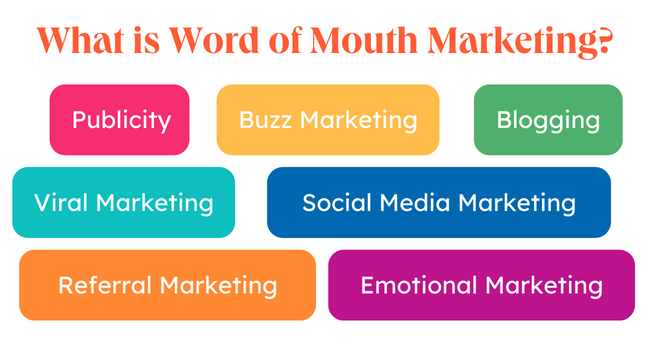
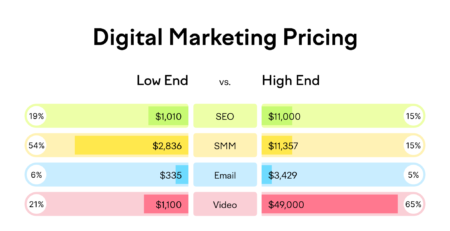


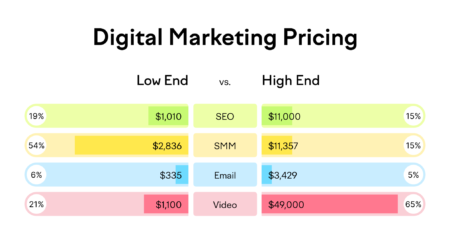
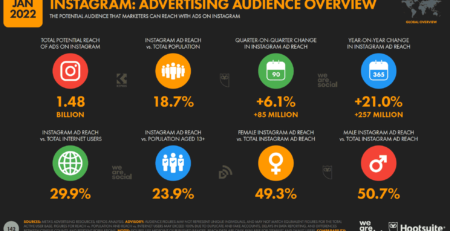


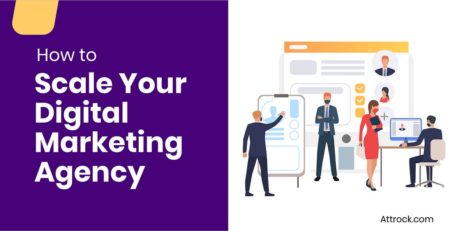


Leave a Reply